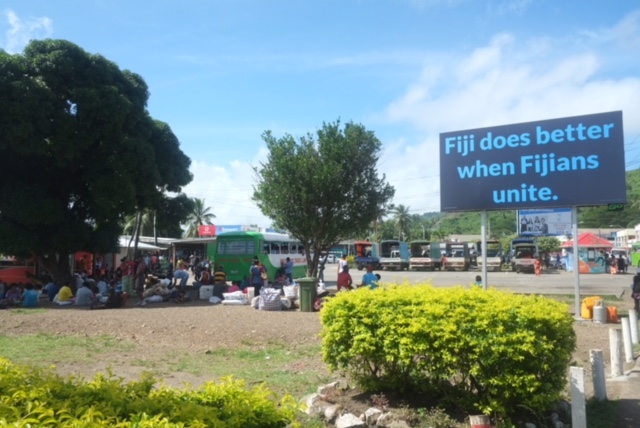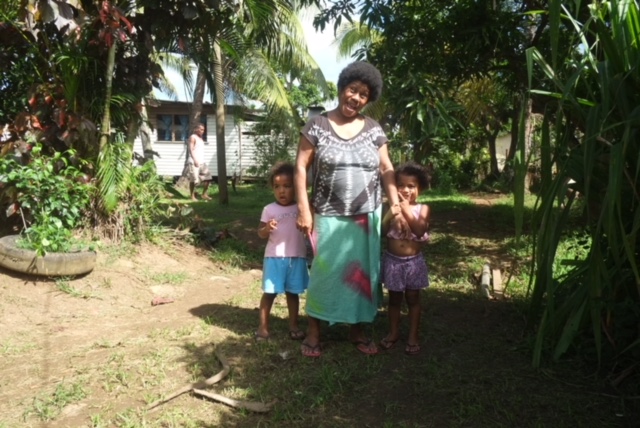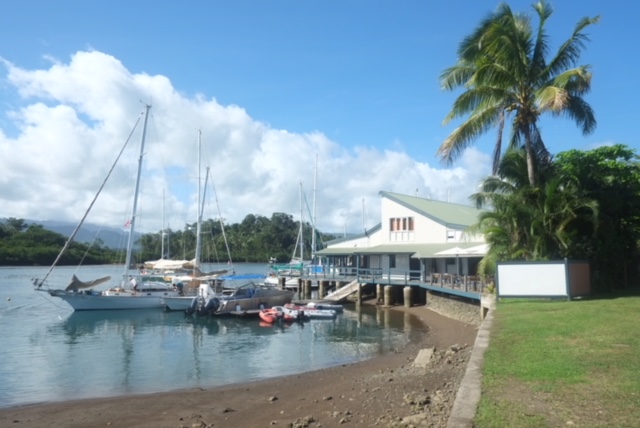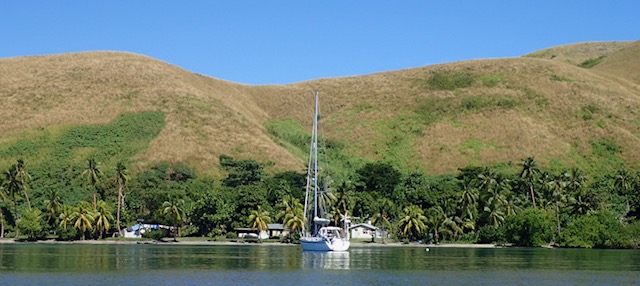Fiji Cruising

Vega
Hugh and Annie
Mon 18 Jun 2018 03:08
When we were heading up to Savusavu last Thursday evening we could see lightning to the west. This had been predicted by our weather forecast which now gives CAPE values as one of the data options. CAPE (Convective Available Potential Energy) is a measure of the rate at which air is rising taken from its temperature. CAPE values of 2000 or more suggest thunder and lightning and therefore squally conditions. What neither we nor any of the forecasters had anticipated was the rapid drop in pressure and continuously strong wind for a period of more than six hours. Study of archive information on the website Earthnullschool apparently shows a jet stream over Fiji at the time; a rapid drop in pressure at the surface can be linked to a jet stream.
Earthnullschool is a wonderful resource that I have mentioned before. For anyone interested in the interlinking air movements (and more) all around the world it is brilliant. You can see this at different levels in the atmosphere but nobody was looking high enough on Thursday. And even if you aren’t particularly interested in the air movements the wonderful glowing colours are perfect bedtime viewing!
Fiji seems to be a happy place, judging by the friendly interactions we have. Everyone is keen to say Bula (hello) and to hear where we are from. Perhaps its the Kava. This is a disgusting looking sludgy brown liquid made from the roots of the Kava plant that imparts a sense of wellbeing when it is drunk. The price of Kava has rocketed since the last tropical storm hit supplies and the root now fetches 120 dollars a kilo (about £40). On the islands it is required that you obtain the permission of the tribal chief to anchor in their territory and you do this at a special ceremony at which you present around half a kilo of Kava root. In return you may be adopted by a family and given meals and be shown around.
There is a striking difference between the appearance of the locals here in what is Melanesia compared to those in Polynesia. In Fiji there is also the fact that a significant proportion of the population is of Indian descent (originally brought here by the British to work in the plantations) and this has given rise to great tension. Much of the commercial activity seems to be run by those from the Indian derived community. Large billboards proclaim that Fiji is best when Fijians come together. Life is clearly more complex than we see with our superficial interactions.
Being out here also gives us the opportunity to follow events at home from a different perspective. I listen to podcasts put out by The Economist, The Guardian, The Spectator and the BBC to try and get a feel in greater depth than from just the news headlines. It seems to me that Brexit is the catalyst for an ideological battle as great as that fought after 1945 when the country had to decide whether to maintain the status quo or opt for a more inclusive change of direction for the future. The Tory right is now fighting for a freewheeling deregulated economy within which it will be survival of the fittest. They are holding the country to ransom through the minority government and belatedly Parliament is waking up to the fact that it has been marginalised. Those that have suffered under austerity or those for whom rules and regulation are anathema (from whatever source) and have voted for Brexit are being portrayed as the “will of the people”. However, we should all reflect upon the fact that, as a result of austerity policy, the UK now has a falling life expectancy and is one of only two industrialised countries where this is the case (source: Daniel Dorling, Oxford). The other is of course the USA. Insurance companies are well aware of this trend and are adjusting their liabilities accordingly. Life expectancy may not in itself be the determinant of a life well lived but as an indication of social trend in the UK it is pretty shocking.




